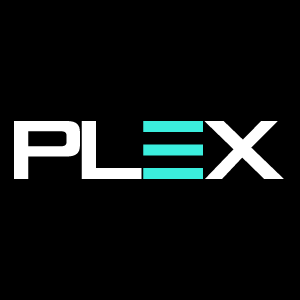

Now Available!
Get your copy of the 7th Annual State of Smart Manufacturing and hear from 300+ manufacturers in this new survey report!
Subscribe to Our Blog
For a monthly digest of expert insights, data points, and tips like the ones in this article.
Digital Building Blocks for Your Enterprise
Digital Transformation, Manufacturing Intelligence, Supply Chain ManagementFrom the most straightforward shed to the highest skyscraper, every structure is built with a complex assortment of components. These “building blocks” give the structure support and strength and allow it to be used as designed.
As manufacturing industries rapidly adopt Industry 4.0 technologies to create smart and fully digital manufacturing systems, companies are realizing that digital building blocks are just as essential.
And those building blocks are key to growth. Research shows that manufacturers who lead in digital transformation realize as much as 45% higher profits than competitors who lag behind.
Here is a look at digital transformation and the building blocks required at each stage.
Transformation Across the Enterprise
Even companies that choose rapid digital transformation must go through stages. These stages ensure that the transformation encompasses the entire company.
While incrementalism is necessary, a complete adoption can’t leave out critical areas of the operation and leave it dead-ended with manual processes. The key to strong building blocks is leveraging real-time data across the enterprise to unlock full visibility in operations.
Foundational
At the foundational stage, companies select and deploy an advanced software platform like the Plex Smart manufacturing Platform and accompanying software for critical functions like inventory, capacity, and demand and supply planning.
This is one of the most critical building blocks of digital transformation and is where things begin to come together. Companies can start to automate internal processes and set the stage for the next steps.
Breaking Down Silos
With a smart manufacturing platform as the foundation, different functional areas can use other digital building blocks such as advanced software like MES, demand and supply planning, inventory optimization, and more to improve and optimize processes.
For example, manufacturing can fully move from manual data to real-time analytical insights to change a process to mitigate a long-held pain point. Because the data is standardized and shared across each functional area deploying the new software, past problems of unmatched metrics, lack of interoperability, and other issues traditionally arising from siloed data are eliminated, creating a more streamlined and data-driven process.
Initial Synchronization
Smart manufacturing platforms allow for rapid change and highly accurate decision-making. These first digital building blocks for transformation begin to reveal trends and insights that enable executives and other leaders to innovate based on data-driven results.
The business model begins to change with the digital structure as its skeleton. Like the framework of a giant skyscraper, digitally driven manufacturing starts to take shape.
Full Synchronization
As more digital building blocks are added to the mix—each linking and operating within a smart manufacturing platform—there is a tipping point where manual processes disappear, and the entire operation is digitally driven.
As an enterprise nears full synchronization, ensuring that employees, staff, line management, and all stakeholders have the tools needed to manage within the new system is critical. Cultural transformation (training, system access, etc.) must be a parallel consideration as more digital building blocks are added so all stakeholders can use the system to its potential.
Fully Transformed
A fully transformed enterprise will continue to add the digital building blocks of transformation.
Manual processes, workarounds, and other traditional tools are no longer considered because the culture has shifted.
Instead, new building blocks are always digital. Examples include expansion into AI-driven analytics, machine learning for faster and more accurate processes, robotics for significant increases in efficiency and safety, and digital twins for product development. These are a few ways companies can continue adding digital building blocks after complete transformation.
Building for the Future
A hallmark of leading manufacturing companies is their ability to use real-time visibility to achieve near-perfect reliability, quality, and efficiency. From there, each stage of transition results in stronger building blocks for the entire enterprise.
Contact us to learn how we can help you deploy the building blocks of digital transformation for your enterprise.

